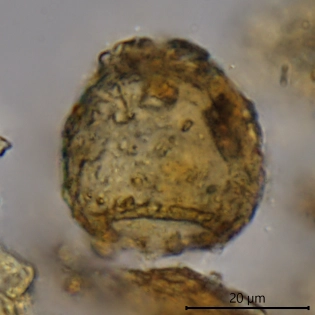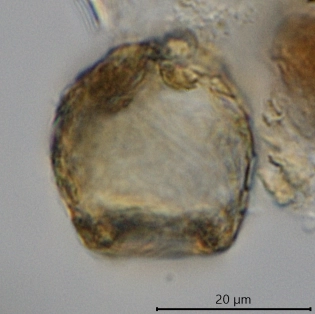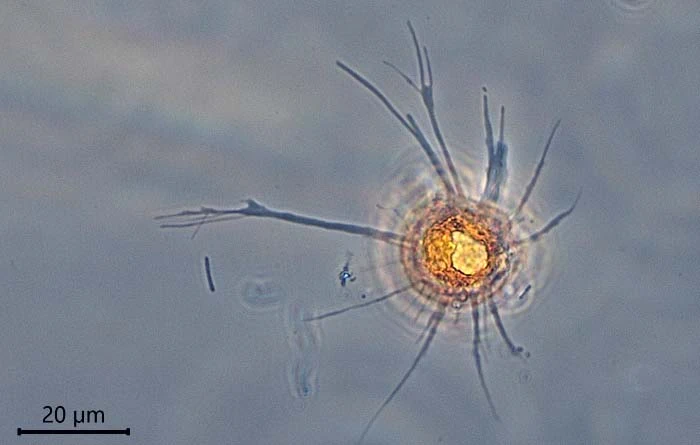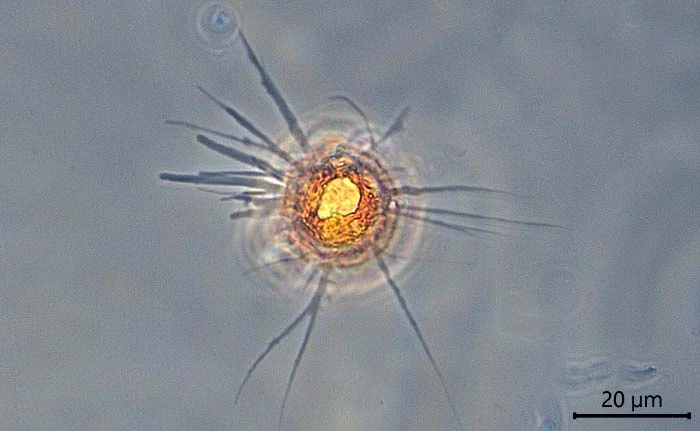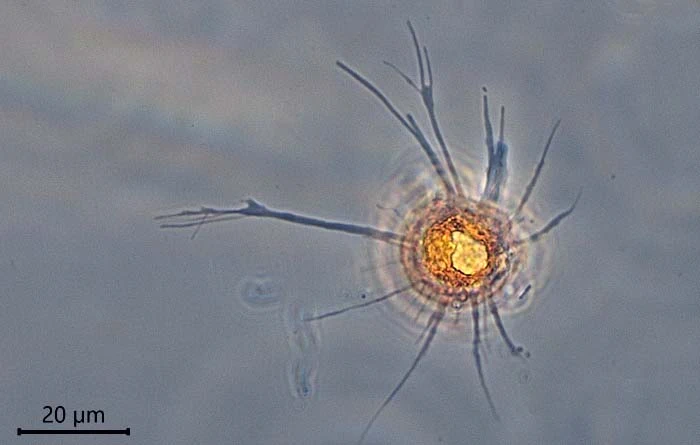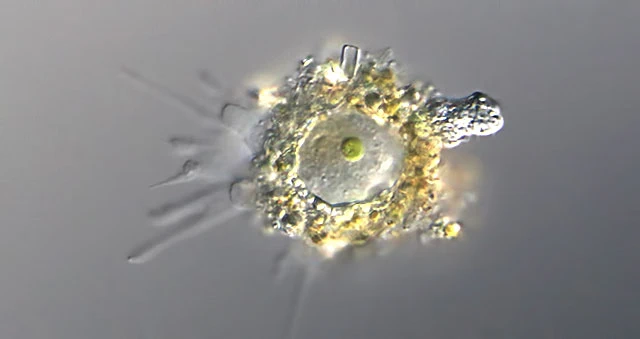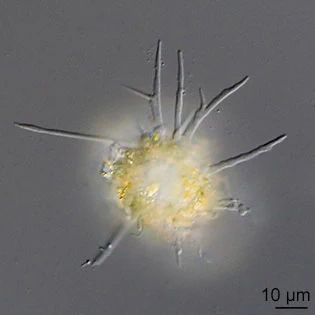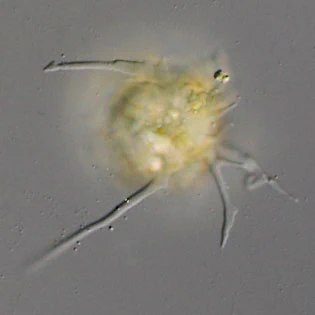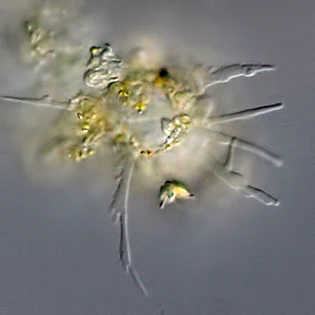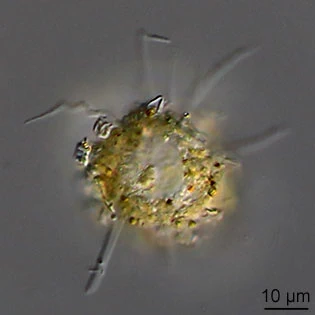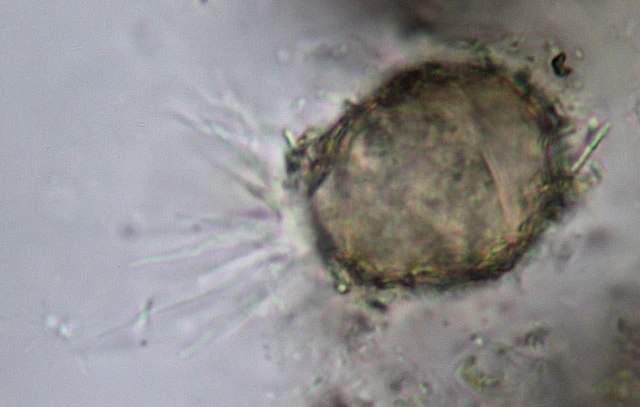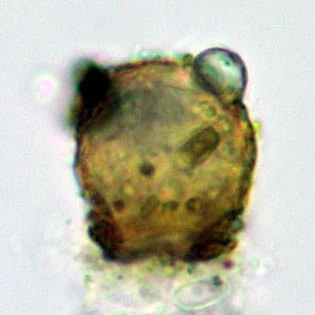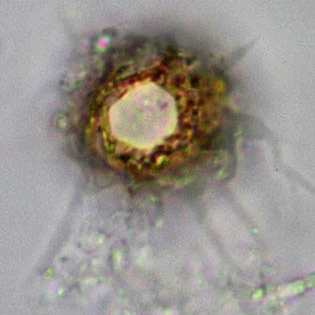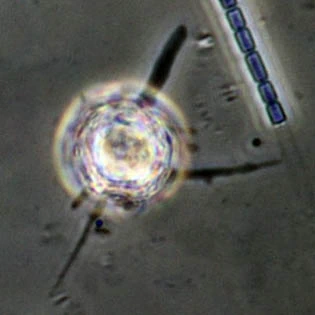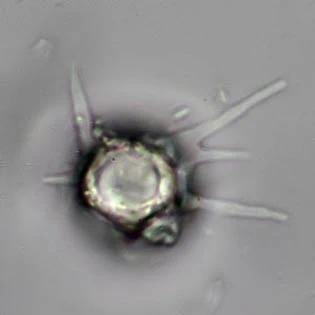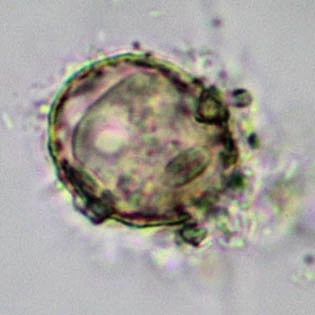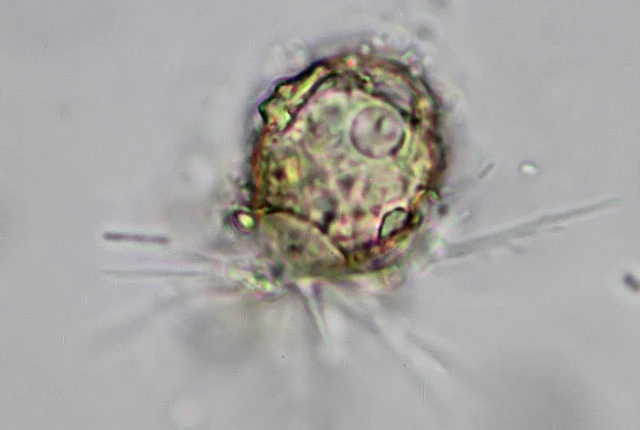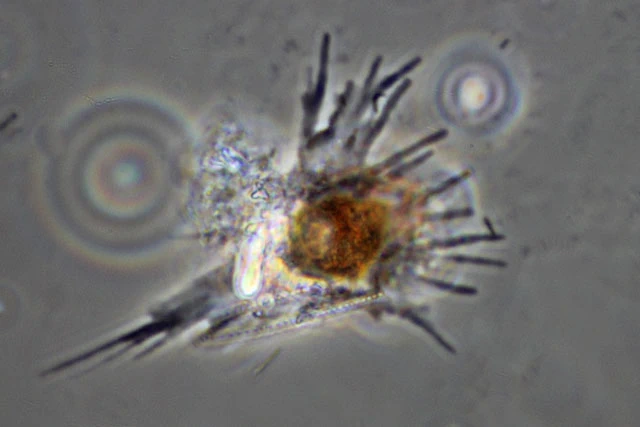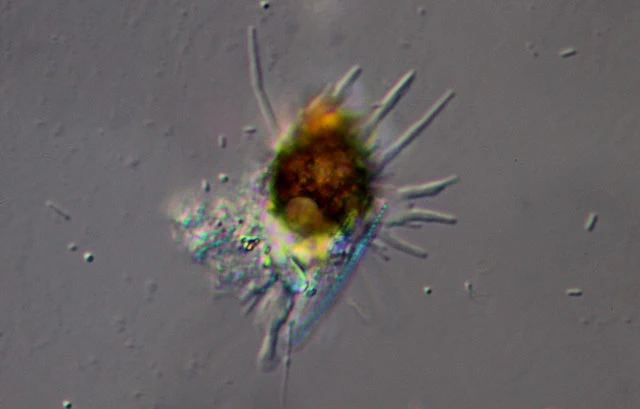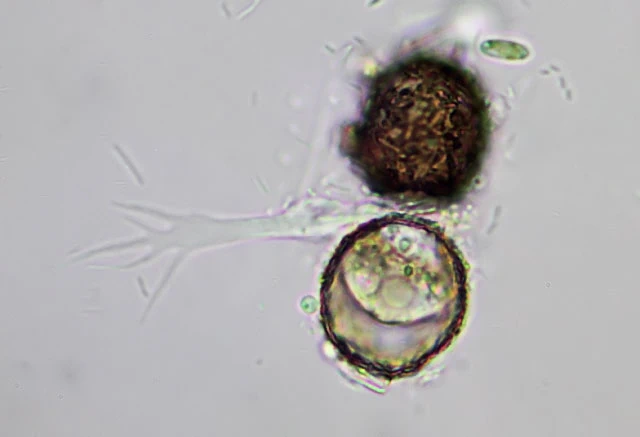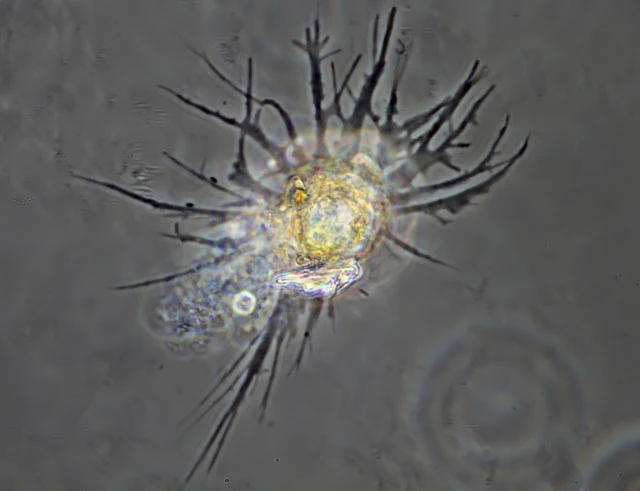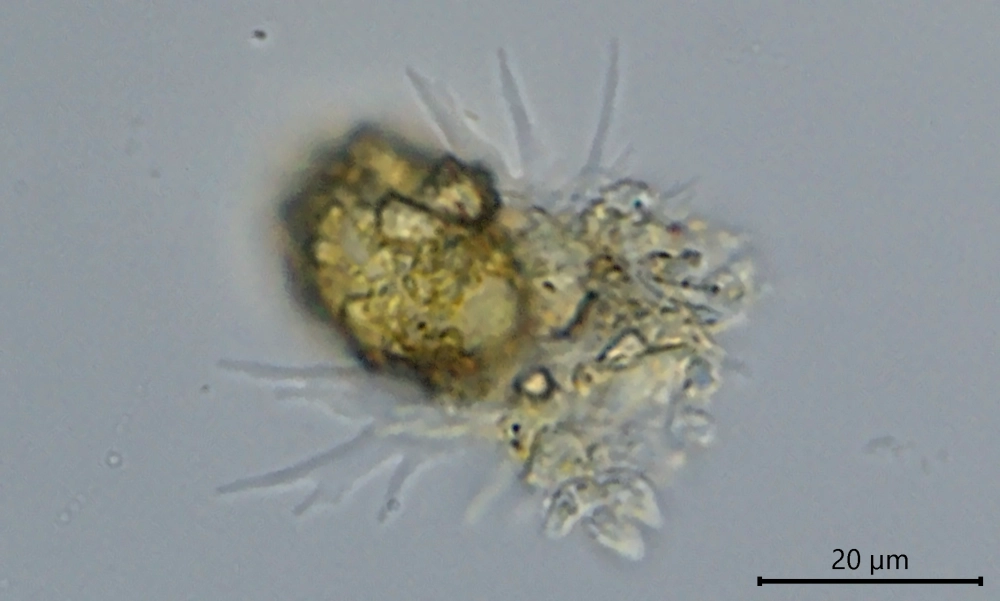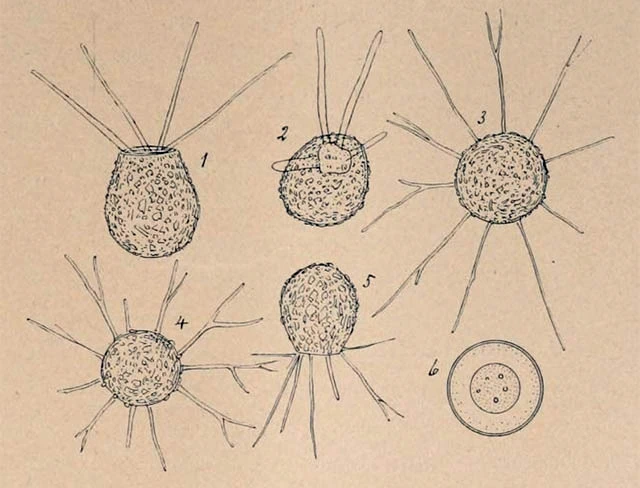
Phryganella paradoxa Penard, 1902
Diagnosis: Shell colorless or yellow or brown, always ovoid and circular in transverse section; wall thin and composed of small siliceous plates and (probably, according to Penard) some pieces of diatom frustules; aperture usually circular, but because of the thin wall sometimes distorted. Pseudopodia long and branching, not tapering or conical.
Dimensions: Penard gives two measurements for the tests: most of his specimens were 17-25 µm long, but at one location they were 30-40 µm long; nucleus vesicular, up to 15 µm in diameter.
Habitat: fresh water and mosses.
Remarks: Without examination of living cells, positive identification based on the shell alone is not possible. It’s important to observe the shape of the pseudopodia which are long and branching. This species might be confused with small tests of Difflugia– and Pseudodifflugia-species.
Penard (1902) doubted whether this species is a Pseudodifflugia or a Phryganella. He choose for the latter, but his drawings of the pseudopodia show thin, not-tapering, branching pseudopodia (“…most often filiform (fig. 3), sometimes linear (fig. 1 and 5), rarely larger like in fig. 2” – see his drawing above). However, the same is true for his drawings of P. nidulus and P. hemisphaerica (Penard, 1902), although he didn’t hardly draw branched pseudopodia there.
I’m not fully convinced that the specimens below belong to P. paradoxa. Size and shape of the tests agree with Penard’s description, but the pseudopodia look different.
